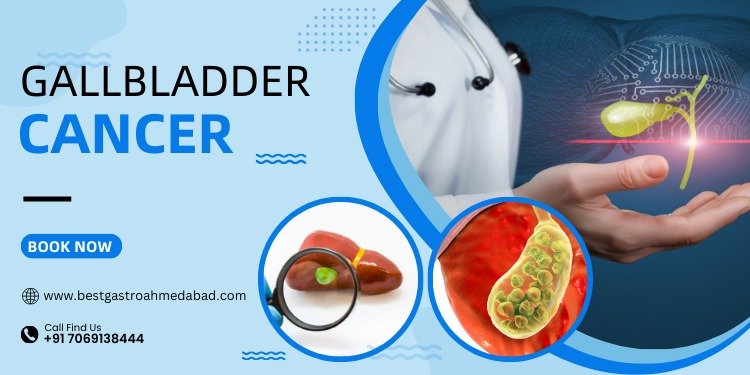Understanding Gallbladder Cancer: Symptoms, Diagnosis, and Treatment

Gallbladder cancer, though relatively rare, can be a serious condition that requires prompt attention. Here’s what you need to know about its symptoms, diagnosis, and treatment.
Symptoms :
Early-stage gallbladder cancer often doesn’t present noticeable symptoms, making detection challenging. However, as the disease progresses, symptoms may include:
- Upper abdominal pain
- Jaundice (yellowing of the skin and eyes)
- Abdominal lumps
- Unexplained weight loss
- Nausea, vomiting, and bloating
- Fever
Diagnosis :
Detecting gallbladder cancer typically involves a series of tests, including:
- Liver function tests to assess liver health
- Carcinoembryonic antigen (CEA) assay and CA 19-9 assay to measure tumor markers
- Imaging tests such as abdominal ultrasound, CT scan, MRI, endoscopic ultrasound, and ERCP
- Surgeries like biopsy and laparoscopy to obtain tissue samples for analysis.
Treatment :
Treatment strategies depend on the stage of the cancer:
Early-stage: Surgery, including cholecystectomy and possibly radiation therapy or chemotherapy to eliminate remaining cancer cells.
Advanced or metastatic: While unresectable, recurrent, or metastatic cancers are not curable, treatments such as radiation therapy and chemotherapy can help manage symptoms and extend life expectancy. Clinical trials exploring targeted therapy, immunotherapy, and radiosensitizers offer promising avenues for treatment advancement.
Understanding the symptoms, diagnostic procedures, and treatment options for gallbladder cancer is crucial for early detection and effective management. If you experience any concerning symptoms or have risk factors associated with the disease, consult with a healthcare professional promptly.
